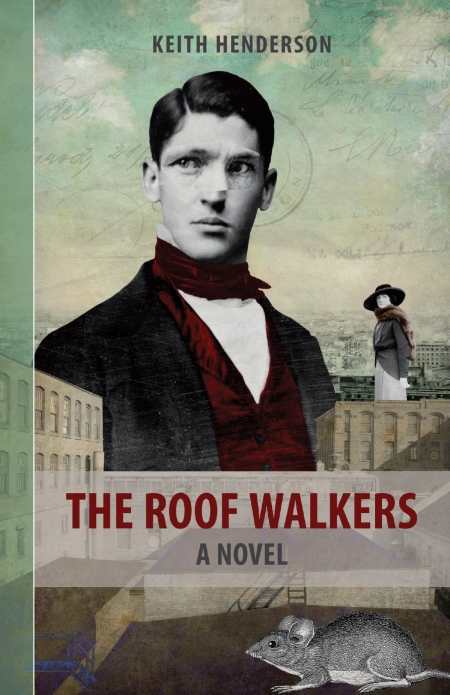The Roof Walkers
- 2013 INDIES Finalist
- Finalist, War & Military (Adult Fiction)
With a unique narrative approach, Keith Henderson recreates the birth of Canada.
The Roof Walkers by Keith Henderson, an epistolary novel about the birth of Canada, is historical fiction at its best. It not only illuminates a point in time, but wraps its subject in a compelling story of intrigue and passion. Henderson examines that time near the end of the American Civil War when Thomas D’Arcy McGee’s vision of “one great nationality” in a peaceful and united Canada—then a loose confederation of provinces—was anything but a foregone conclusion.
Henderson’s narrative unfolds through a series of letters written by Eoin O’Donoghue, a disaffected young literary aide to William Roberts, senator of the Irish Republic, now in exile in New York. Roberts is coordinating plans for a Fenian invasion, lest Canada become yet another territory of the crown. Eoin’s letters are addressed to spymaster Gilbert McMicken, who was at that time in charge of Canada West’s secret service. Henderson succeeds with this approach because his narrator is in the middle of the action, and privy to information from both the Fenians and the royalists. He is sickened by his recent association with the “entirely new, merciless, and frightening” ethnic violence he sees on the horizon. Sympathetic to McGee’s “far more honorable” confederation project in Canada, Eoin offers his services to McMicken, who has been attempting to penetrate the Fenians.
This novel approach to point of view demands a narrator who is more than a spy reporting to his superior, and Henderson does not disappoint. In Eoin, he brings forth a narrator/main character who is well-read, loves poetry, and has a measure of depth and a strong moral sense. Henderson displays considerable writing chops and a well-trained sense of literary detail. Eoin’s traits are unsuitable for a Fenian revolutionary or a spy for the crown, but they spell conflict in this novel, which is always as personal as it is political.
Unlike his embittered father, himself an advocate of revolution who had called Eoin “bookish and dreamy,” and unlike his New York roommate, a grubby, fanatical reporter for the Fenian-friendly Irish-Canadian newspaper, Eoin is in turmoil over not only his service to the rebels but also his, as he calls it, “Judas informantcy.” His situation becomes both dangerous, as he becomes aware of Fenian-style retribution against “traitors and ferrets,” and complicated, as his feelings grow for an illegitimate daughter of Fenian leader James Stephens. Henderson works his personal and political stories well, alternately ratcheting the stakes for both Eoin and Canada to a psychological and international climax.
As he recreates a slice of history, Henderson remains true to it. A former journalist and politician who has written two other novels and a short story collection, he introduces such real figures as Roberts and Stephens, while also peppering the narrative with the activities of Irish leaders John O’Mahony and Zachariah Chandler, US Secretary of State William Seward, and of course the revered founding father McGee.
Americans will be made familiar with an Irish movement that was born in the United States; Eoin likens the Fenians to the recently defeated Confederate rebels of the Civil War. Canadians will certainly feel enlightened, their nationalistic feelings stoked by the urgency that the very real threat of Fenian attack contributed to their country’s birth.
Reviewed by
Joe Taylor
Disclosure: This article is not an endorsement, but a review. The publisher of this book provided free copies of the book and paid a small fee to have their book reviewed by a professional reviewer. Foreword Reviews and Clarion Reviews make no guarantee that the publisher will receive a positive review. Foreword Magazine, Inc. is disclosing this in accordance with the Federal Trade Commission’s 16 CFR, Part 255.

